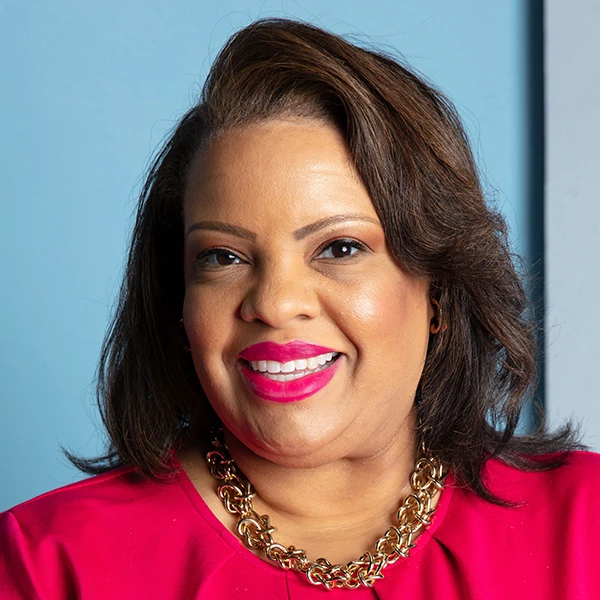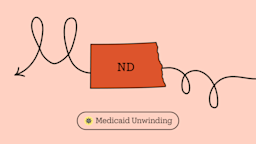Key takeaways:
Medicaid renewals in the District of Columbia are changing because of the end of the COVID-19 public health emergency (PHE) on May 11, 2023. This is called the unwinding of Medicaid, and some people will lose coverage during this process.
During the PHE, Medicaid renewals were automatic and enrollees had continuous coverage. As part of the unwinding, automatic renewals for Medicaid and Children’s Health Insurance Program (CHIP) coverage stopped nationwide on March 31, 2023.
D.C. has started to determine who is currently eligible for Medicaid. Make sure the Department of Health Care Finance (DHCF) has your current contact information if you’re enrolled in Medicaid in D.C. If you can’t be reached or no longer qualify for Medicaid, you could lose coverage as early as June 1, 2023.
The U.S. Department of Health and Human Services declared a public health emergency (PHE) for COVID-19 in January 2020, which was renewed a dozen times through February 2023.
During the COVID PHE, Medicaid enrollees were able to keep their health insurance coverage without eligibility reviews. That’s because states and territories were required to provide continuous coverage during this period.
But the PHE ends on May 11, 2023, along with automatic renewals for Medicaid enrollees. The District of Columbia Department of Health Care Finance (DHCF) is reviewing Medicaid and Children’s Health Insurance Program (CHIP) enrollees to determine who is eligible for coverage. This process is called redetermination.
If you or your family members no longer qualify for Medicaid or CHIP, you could lose coverage as early as June 1, 2023. Here’s how to prepare for Medicaid changes in D.C. and what to do if you lose coverage.
Why is Medicaid changing nationwide?
After the PHE ends, COVID-19 will remain a public health priority — just not an emergency. As part of this process, Medicaid renewals will no longer be automatic. This is being referred to as the unwinding of Medicaid, and millions of people nationwide risk losing coverage.
The unwinding will affect Medicaid in every state, D.C., and five U.S. territories.
What’s happening with Medicaid renewal in D.C.?
The DHCF is the office responsible for the District’s Medicaid program, which is called DC Medicaid. The DHCF has a redetermination plan that explains how the District intends to handle the unwinding of Medicaid. About 305,000 people were enrolled in DC Medicaid in March 2023.
To get the word out about eligibility reviews resuming, DC Medicaid is conducting a “Don’t Wait to Update!” campaign through neighborhood outreach events, TV and radio ads, transit ads on buses, and partnerships with community-based organizations.
The DHCF began the Medicaid unwinding process on April 1, 2023 and will review Medicaid renewals through May 2024. So it’s important to confirm or update your household’s contact information with the agency.
Read more like this
Explore these related articles, suggested for readers like you.
You can confirm or update your information by:
Visiting your District Direct account online or in the mobile app
Calling the DC Public Benefits Call Center at 202-727-5355
Visiting a District Direct service center
About two-thirds of enrollees will be passively renewed, meaning that the DHCF has enough information to confirm their eligibility. If you’re not one of these people and you need to provide the agency with additional information, you will receive a renewal packet at the address attached to your account.
People who miss the deadline to submit their renewal packets will have a grace period to provide the necessary information or reapply if they lose coverage. Depending on why you’re eligible for Medicaid, that grace period may be 30 days or 90 days.
What should I do if I lose my Medicaid coverage in D.C.?
If the DHCF doesn’t renew your coverage during the redetermination process, you will no longer be able to use your benefits, which could leave you temporarily uninsured.
In order to receive Medicaid in D.C., you must meet all of the following criteria:
You are a D.C. resident.
You are a U.S. citizen, permanent resident, or legal resident.
You need assistance with access to healthcare or insurance coverage.
Your annual household income before taxes are withheld meets the limit for your household size.
In D.C., you may also qualify for reasons other than income, including if you are:
Pregnant
A child or teenager
Responsible for the care of a child who is 18 years old or younger
Blind
65 years old or older (and meet certain criteria)
A person with a disability or a household member who has a qualifying disability
A former foster child
In need of nursing home care
Currently receiving Supplemental Security Income (SSI)
In need of treatment for breast or cervical cancer (and have been screened)
If you no longer meet the eligibility guidelines, your Medicaid coverage in D.C. won’t be renewed. If you lose coverage but believe you still qualify, you should reapply for Medicaid in D.C. You may be uninsured for a while if you reapply and need to wait to be approved again. In that case, you may want to consider free and low-cost healthcare options. You can also use free GoodRx coupons to save on your prescription medications.
If you don’t plan to reapply for Medicaid, you may be able to find health insurance through one of these options:
Affordable Care Act (ACA) marketplace: DC Health Link is the District’s version of the ACA marketplace, where you may be able to find coverage for $10 or less per month if you qualify for a premium subsidy. If you lose your Medicaid coverage, you may be able to get a DC Health Link plan during an unwinding special enrollment period from March 31, 2023 to July 31, 2024.
Employer plan: You may want to take advantage of employer-sponsored healthcare if you have a job that offers health insurance benefits.
Medicare: If you have a qualifying disability or condition — such as end-stage renal disease or ALS (amyotrophic lateral sclerosis), commonly referred to as Lou Gehrig’s disease — you can enroll in Medicare at any age.
Partner’s plan: If you have a spouse or domestic partner who has insurance, you may be able to join their plan during an open enrollment or special enrollment period.
Special plans: Short-term insurance can be a great choice if you anticipate a better option, like job-based health insurance, to be available soon. You may also consider alternative and limited-benefit plans, such as fixed indemnity, accident, cost-sharing, and catastrophic insurance plans.
Student health plan: If you’re enrolled in a college or university, you may be eligible for a campus health plan.
U.S. Department of Veterans Affairs (VA): If you are an active-duty service member or a veteran, you may qualify for TRICARE coverage or VA benefits and services.
D.C. Medicaid resources
Here are some sites where you can learn more about Medicaid in D.C. and upcoming changes related to the end of the PHE:
DC Medicaid office: The DHCF oversees DC Medicaid.
DC Medicaid self-service portal: You can log in to your Medicaid account 24/7 through the District Direct portal to make sure your mailing address and other contact information are correct.
DC Medicaid redetermination: This resource from the DHCF provides details about the DC Medicaid redetermination plan, including the timeline of changes.
DC Medicaid renewal letter examples: See samples of Medicaid renewal letters on DC.gov.
The bottom line
Automatic Medicaid renewals stopped nationwide on March 31, 2023, in advance of the COVID-19 public health emergency (PHE) ending on May 11, 2023.
The Department of Health Care Finance (DHCF) will spend 14 months reviewing eligibility for enrollees in the District of Columbia’s Medicaid program, DC Medicaid, starting in April 2023. So, if you’re enrolled in Medicaid in D.C., it’s important to update your contact information in your District Direct account to ensure you receive notifications. Most people will be renewed without having to take any action. If you’re not one of those people, you will be mailed a renewal packet to confirm your eligibility.
If you lose your Medicaid coverage, you may still qualify for health insurance through another provider. Your options may include DC Health Link — which offers Affordable Care Act (ACA) marketplace plans — as well as Medicare or job-based insurance.

Why trust our experts?


References
Administration for Strategic Preparedness and Response. (2020). Determination that a public health emergency exists.
Administration for Strategic Preparedness and Response. (2023). Renewal of determination that a public health emergency exists.
Centers for Medicare and Medicaid Services. (2023). Temporary special enrollment period (SEP) for consumers losing Medicaid or the Children’s Health Insurance Program (CHIP) coverage due to unwinding of the Medicaid continuous enrollment condition – Frequently asked questions (FAQ).
DC.gov. (n.d.). How to qualify for DC Medicaid?
DC.gov. (n.d.). Medicaid.
DC.gov. (n.d.). Medicaid renewal information for DC Medicaid beneficiaries and stakeholders.
DC.gov. (n.d.). Medicaid restart.
DC.gov. (n.d.). State report on plans for prioritizing and distributing renewals following the end of the Medicaid continuous enrollment provisions.
Department of Health Care Finance. (2023). Operational plan for unwinding continuous coverage and the COVID-19 public health emergency. DC.gov.
Medicaid.gov. (n.d.). Unwinding and returning to regular operations after COVID-19.
Tolbert, J., et al. (2023). 10 things to know about the unwinding of the Medicaid continuous enrollment provision. Kaiser Family Foundation.


















